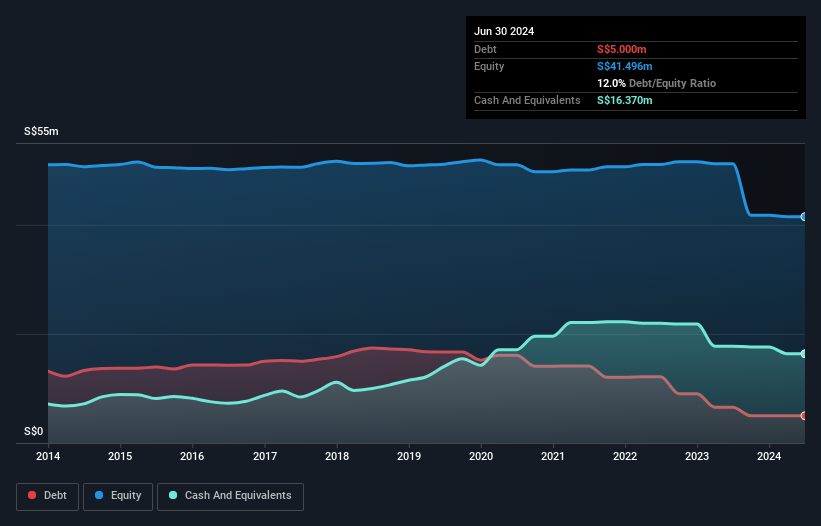Is Qian Hu (SGX:BCV) Using Too Much Debt?
Warren Buffett famously said, 'Volatility is far from synonymous with risk.' It's only natural to consider a company's balance sheet when you examine how risky it is, since debt is often involved when a business collapses. We note that Qian Hu Corporation Limited (SGX:BCV) does have debt on its balance sheet. But is this debt a concern to shareholders?
What Risk Does Debt Bring?
Debt and other liabilities become risky for a business when it cannot easily fulfill those obligations, either with free cash flow or by raising capital at an attractive price. If things get really bad, the lenders can take control of the business. While that is not too common, we often do see indebted companies permanently diluting shareholders because lenders force them to raise capital at a distressed price. Of course, plenty of companies use debt to fund growth, without any negative consequences. When we examine debt levels, we first consider both cash and debt levels, together.
View our latest analysis for Qian Hu
What Is Qian Hu's Net Debt?
The image below, which you can click on for greater detail, shows that Qian Hu had debt of S$5.00m at the end of June 2024, a reduction from S$6.57m over a year. But on the other hand it also has S$16.4m in cash, leading to a S$11.4m net cash position.

How Healthy Is Qian Hu's Balance Sheet?
The latest balance sheet data shows that Qian Hu had liabilities of S$14.7m due within a year, and liabilities of S$1.13m falling due after that. On the other hand, it had cash of S$16.4m and S$12.3m worth of receivables due within a year. So it actually has S$12.8m more liquid assets than total liabilities.
This luscious liquidity implies that Qian Hu's balance sheet is sturdy like a giant sequoia tree. On this view, lenders should feel as safe as the beloved of a black-belt karate master. Succinctly put, Qian Hu boasts net cash, so it's fair to say it does not have a heavy debt load! When analysing debt levels, the balance sheet is the obvious place to start. But it is Qian Hu's earnings that will influence how the balance sheet holds up in the future. So when considering debt, it's definitely worth looking at the earnings trend. Click here for an interactive snapshot.
Over 12 months, Qian Hu saw its revenue hold pretty steady, and it did not report positive earnings before interest and tax. While that's not too bad, we'd prefer see growth.
So How Risky Is Qian Hu?
While Qian Hu lost money on an earnings before interest and tax (EBIT) level, it actually generated positive free cash flow S$2.1m. So taking that on face value, and considering the net cash situation, we don't think that the stock is too risky in the near term. The next few years will be important as the business matures. The balance sheet is clearly the area to focus on when you are analysing debt. However, not all investment risk resides within the balance sheet - far from it. To that end, you should learn about the 3 warning signs we've spotted with Qian Hu (including 2 which don't sit too well with us) .
When all is said and done, sometimes its easier to focus on companies that don't even need debt. Readers can access a list of growth stocks with zero net debt 100% free, right now.
Have feedback on this article? Concerned about the content? Get in touch with us directly. Alternatively, email editorial-team (at) simplywallst.com.
This article by Simply Wall St is general in nature. We provide commentary based on historical data and analyst forecasts only using an unbiased methodology and our articles are not intended to be financial advice. It does not constitute a recommendation to buy or sell any stock, and does not take account of your objectives, or your financial situation. We aim to bring you long-term focused analysis driven by fundamental data. Note that our analysis may not factor in the latest price-sensitive company announcements or qualitative material. Simply Wall St has no position in any stocks mentioned.
 Index Options
Index Options CME Group
CME Group Nasdaq
Nasdaq Cboe
Cboe TradingView
TradingView Wall Street Journal
Wall Street Journal